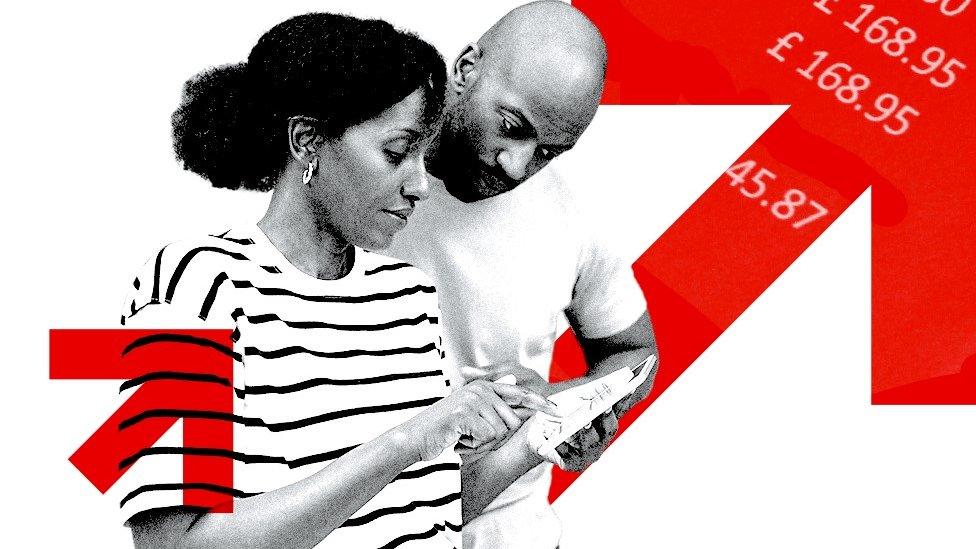Cost of living crisis: 'We’re not really living any more'
- Published
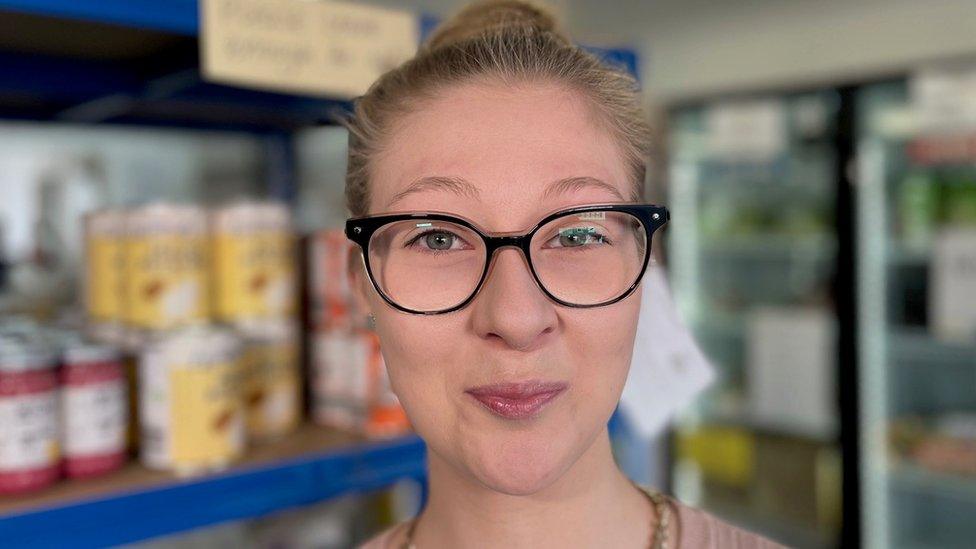
Shelby Harrob says her tight budget means she can only buy basic essentials.
As the cost of living crisis continues, BBC Scotland has been looking at how people across the country are coping.
"We're not really living any more, there's no living," says 26-year-old Shelby Harrob, from Whitburn in West Lothian.
"You wake up and it's just the same old same stuff."
''We used to go on day trips, I used to like swimming, singing, shopping but I can't do that anymore. There's no luxury in life, really, it's just surviving, really."
The former carer had to stop work after developing dermatitis on her hands. She is now finding ways to cope living on universal credit.
"It's not enough. It's very, very hard," she says. "You're having to make everything stretch. I'm visiting friends and getting half bags of sugar and stuff.''
Her tight budget means that Shelby can only buy basic essentials.
''You need your butter, you need your milk, your cheese, your basics instead of maybe chocolate, crisps - I can't afford it," she says.
Her trips to the community fridge in the town are a lifeline, providing affordable and free food to anyone who needs it.
Despite the current struggles, Shelby is determined to stay positive and dreams of going to the Eiffel Tower one day and finding a new job.
"I keep that good aura," she says. "There's always light at the end of the tunnel."
'I don't want to be trapped in a job for the rest of my life'

Kirstie Russell hopes to have a career teaching music one day
Also in Whitburn, Kirstie Russell hopes to have a career teaching music one day but in the meantime she is doing her best to save up to be able to afford to go to college.
The 20-year-old barista had an offer to study music in Edinburgh but deferred for a year to work during the pandemic. Now she's worried she's stuck in a job making coffee, instead of music.
"It's been quite hard thinking that I'm maybe trapped in a job for the rest of my life," she says. "But I know that I do want to go study music at some point even if it takes a few years."
"I'd rather at this point in my life be studying more and working at the weekend," she says.
"I can't drive at the moment and so I'd get the train or bus if I was going to do a college course. I'd have to find my own accommodation," she says. "I'd have to have money put by for that."
'Getting stuff to the islands is a real struggle'

Fisherman Calum Maclean says things are getting a lot more difficult
Standing on the pier in Tobermory on the Isle of Mull, fisherman Calum Maclean looks back at the brightly coloured buildings.
He has been going out to sea since he was 15 or 16 years old but much has changed since then for this island community.
"We've been fishermen here for generations, but things are getting a lot more difficult nowadays with the cost of living," he says.
"Getting stuff to the islands is a real struggle with the cost of ferries and fuel."
The creel boat owner says that the fishing industry has its ups and downs but "you just have to take the rough with the smooth".
"The problem is getting people here to work," he says. "The summer's a real struggle to get people here."
Calum has also noticed that life is harder at home.
"It's a dear hobby having a family nowadays, but we just have to struggle on," he says. "Food is very expensive. It's an expensive place to live nowadays."
The dad-of-two has recently build his own home in the area and wants to continue living on the island.
"If I hadn't had children, I'd have been away but it's a great life for the kids here," he says.
"Your houses are safe, your children are safe, you're only a couple of hours to Glasgow or Oban so they can adapt to both lifestyles quite easily. It's a lovely part of the world."
'I don't think working families are supported enough'
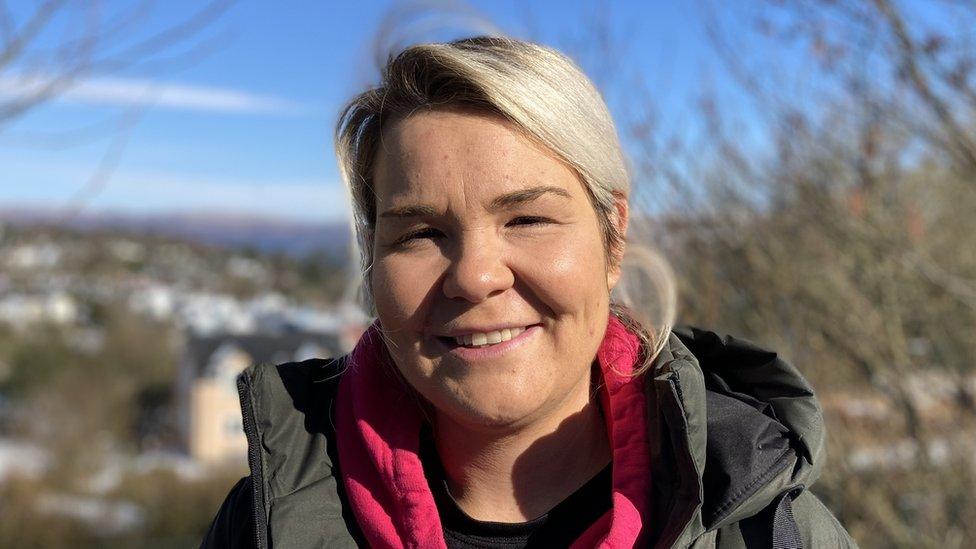
Claire Mackenzie Noble is having to carefully consider whether the bakery can survive
For Claire Mackenzie Noble, owning Tobermory Bakery is a dream come true.
The mum-of-two first worked there as a shop-girl aged 17. Now, the pressure on her to save the business from closure is huge.
"The bakery is seen as the heart of Tobermory," she says. "We mainly have working mothers and it's their income into their household as well."
Claire is having to carefully consider whether the bakery can survive - with energy bills expected to rise to £10,000 a month.
"We're lucky enough to be on a fixed contract until December and we're roughly about £2,000 a month. But we're looking to see that go about five times more after December."
"It's a bit of a crisis at the moment," she says. "It's just adding up and adding up."
Essential ingredients to the store have also increased by about 47%.
If the shop is unable to stay open, Claire and her family might have to consider a new life on the mainland.
"I don't know if I could stay here and walk past the bakery every day," she says. "I'd be really disappointed and gutted to move. It's all I've known. I've got my family here, my friends here, got the business here and I just don't want to."
At home, she lives with her husband and two boys - Iain, aged 13, and Donnie, aged 8.
"We can't have the heating on so much," she says. "We have tried to be a bit more self-sufficient - we bought some chickens."
Claire would like to see more financial help available.
"I don't think working families are supported enough," she says. "We've put so much into the bakery coming through Covid and we thought things would get better but they're getting worse."
'My savings are keeping going down and down'
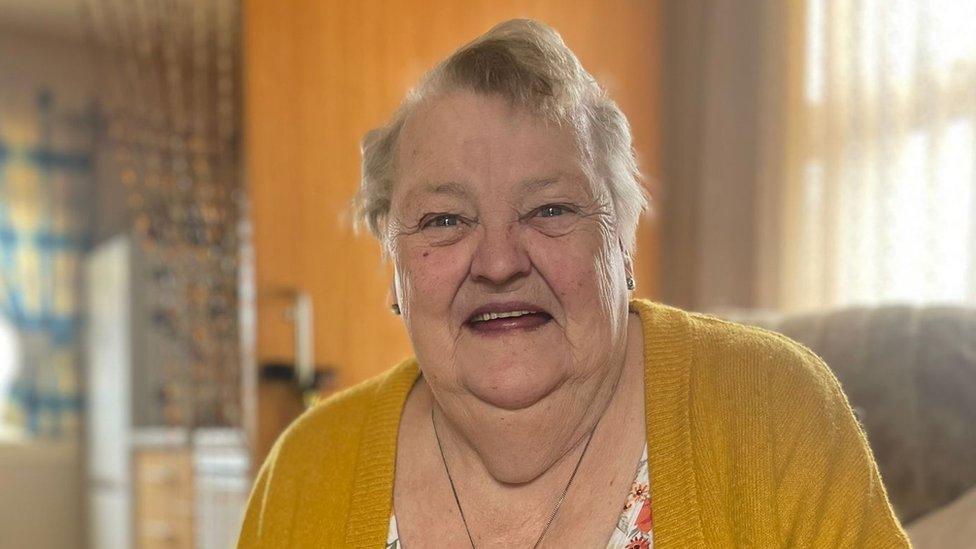
Bett Hannah is finding it a struggle to keep on top of rising costs
In Stranraer, Bett Hannah looks forward to charity Food Train delivering her shopping every week.
"When you don't get out, you've nobody," she says. "Some days I can sit here and see no-one but that doesn't bother me. They're friendly and they make you feel at ease."
The 76-year-old is finding it a struggle to keep on top of rising costs.
"You're taking it out of the savings to cover up what you're using but you can't put it back," she says. "You've not got the money to put it back, so it means your savings are keeping going down and down."
Bett is shocked by the cost of basic essentials. "It's not the fancy bits," she says. "Bread's gone up, tomatoes are a terrible price, washing powder - you can't do without it.
"You'll make do with less of something to eat to compensate for that."
Bett makes sure nothing goes to waste.
"It used to be you'd say, 'there's a slice of that left, it doesn't matter'. But you've got to use it for something because it's just so expensive."
The pensioner says she doesn't let things get her down.
"We've all come to a time we're on the way down anyway," she says.
"You just have to look after yourself. As long as I can keep fine and keep well - that'll do me."
Related topics
- Published17 July 2024
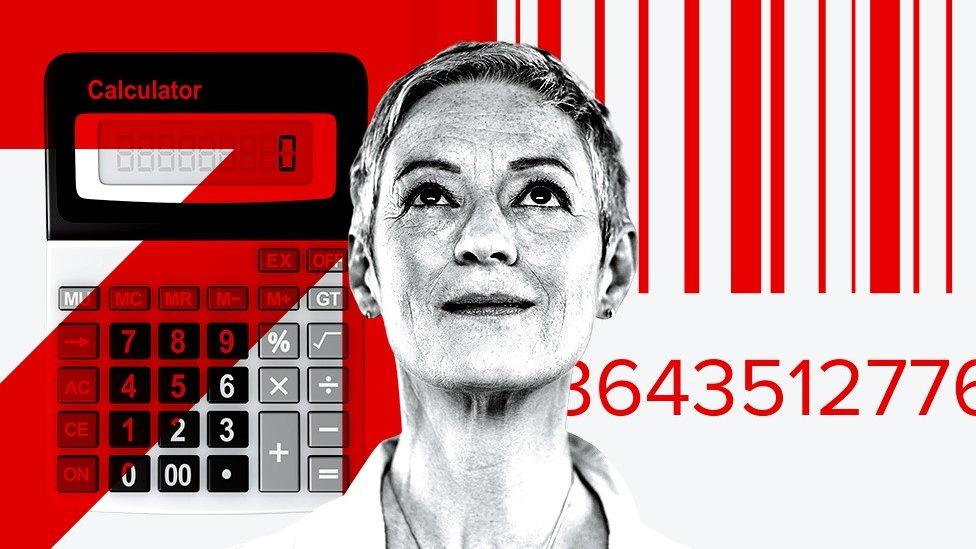
- Published3 April 2024
